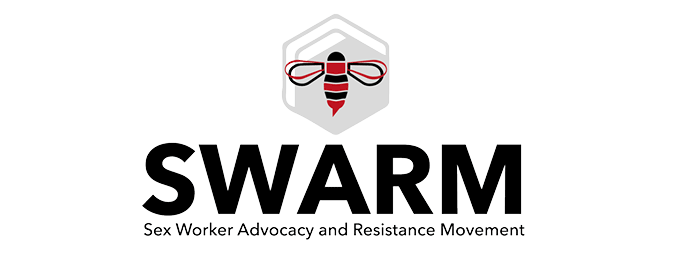We stand for the full decriminalisation of sex work
We advocate for the decriminalisation of sex work. That means we believe that sex workers will be safer and better able to assert their human and labour rights if laws and regulations related to selling, buying or organising sex work are removed. This includes current laws that criminalise soliciting, renting premises for the purpose of sex work, and working together with other sex workers.
We stand up for our right to speak for ourselves
We are not “pro sex work” or “sex industry advocates” and we reject the simplistic portrayals of those who would cast us so. We are intensely aware that for many people, the entrance point into sex work is one of exclusion or desperation - why wouldn’t we be aware of that? We are those people. But we assert that no one can label us victims and use our experiences to silence us, because we’re resourceful, resilient and the experts on our own lives.
We stand for workers' rights
We recognise sex work as work. Currently, workers across the sex industry have little power to assert our rights as workers or improve our working conditions. We want to change that. We believe that full decriminalisation is an essential pre-condition for improving working conditions. And we believe that by working together, we can achieve the improvements in safety and conditions that the international labour movement has achieved in other industries.
We stand for migrants' rights
Many of us are migrants. We believe every human being should be free to travel, cross borders and look for a better life. Rising xenophobia has created a situation where migrants are both more likely to be doing sex work due to lack of recourse to public funds and job market discrimination, and more likely to experience violence when they do sex work. Migrant sex workers in the UK are being targeted by the state for surveillance, raids and forced deportations. Resisting violence against all migrants, including migrant sex workers, is at the heart of SWARM.
We resist gender oppression
We recognise that sex work is done overwhelmingly by women and gender non-conforming people and together we fight for our liberation from gender oppression. In a society where men own most of the power and resources, sex work is a tool of survival, or the best among limited options, for those who experience gender oppression. This is particularly the case for women who experience multiple marginalisations, such as women of colour, trans women, working class women, disabled women, or women who are single mothers. We believe that if you want fewer women to do sex work, you have to focus on expanding women’s options, not criminalising them for doing what they have to do to survive. We are feminists, but we denounce the carceral feminism which seeks to take away our livelihood and our survival. Policies that increase violence against marginalised women will not end patriarchy.We call on all feminist groups and organisations to listen to sex worker-led organisations and open their doors to us so that we can work together towards the eradication of gender violence.
We are in solidarity with the trans liberation movement
Deep-seated transphobic and transmisogynist attitudes in our society limit employment options for many trans women, trans men, and gender non-conforming people and make the sex industry an option for livelihood or survival. We applaud the courage of all trans sex workers who worldwide are working against abuse and violence, and are fighting for the rights of all sex workers.
We are in solidarity with the students' movement
We believe education should be free and that students should be able to access financial assistance that allows them a living wage while they study. The rising cost of higher education has led to an increase in students selling sexual services. Student sex workers, like all students and all workers, should should be supported, and should have unencumbered rights to health and justice.
We are in solidarity with the drug user rights movement
Stigmatised and criminalised, the drug users’ movement shares many similarities with the sex worker rights movement. We support the struggle to end the criminalisation of drug use, and for policies based on evidence and harm reduction. Sex workers who use drugs face a double stigma: our lives are often reduced to stereotypes and our agency denied.
We are in solidarity with HIV+ people
We resist the criminalisation and scapegoating of HIV+ people, and particularly of sex workers living with HIV. We will never ‘buy’ respectability through distancing ourselves from sex workers living with HIV: they are integral to our movement and community. Tackling HIV will only be possible through ending the stigma, exclusion and criminalisation that sex workers living with HIV are so vulnerable to: sex workers need the HIV movement, and the HIV movement needs sex workers.
